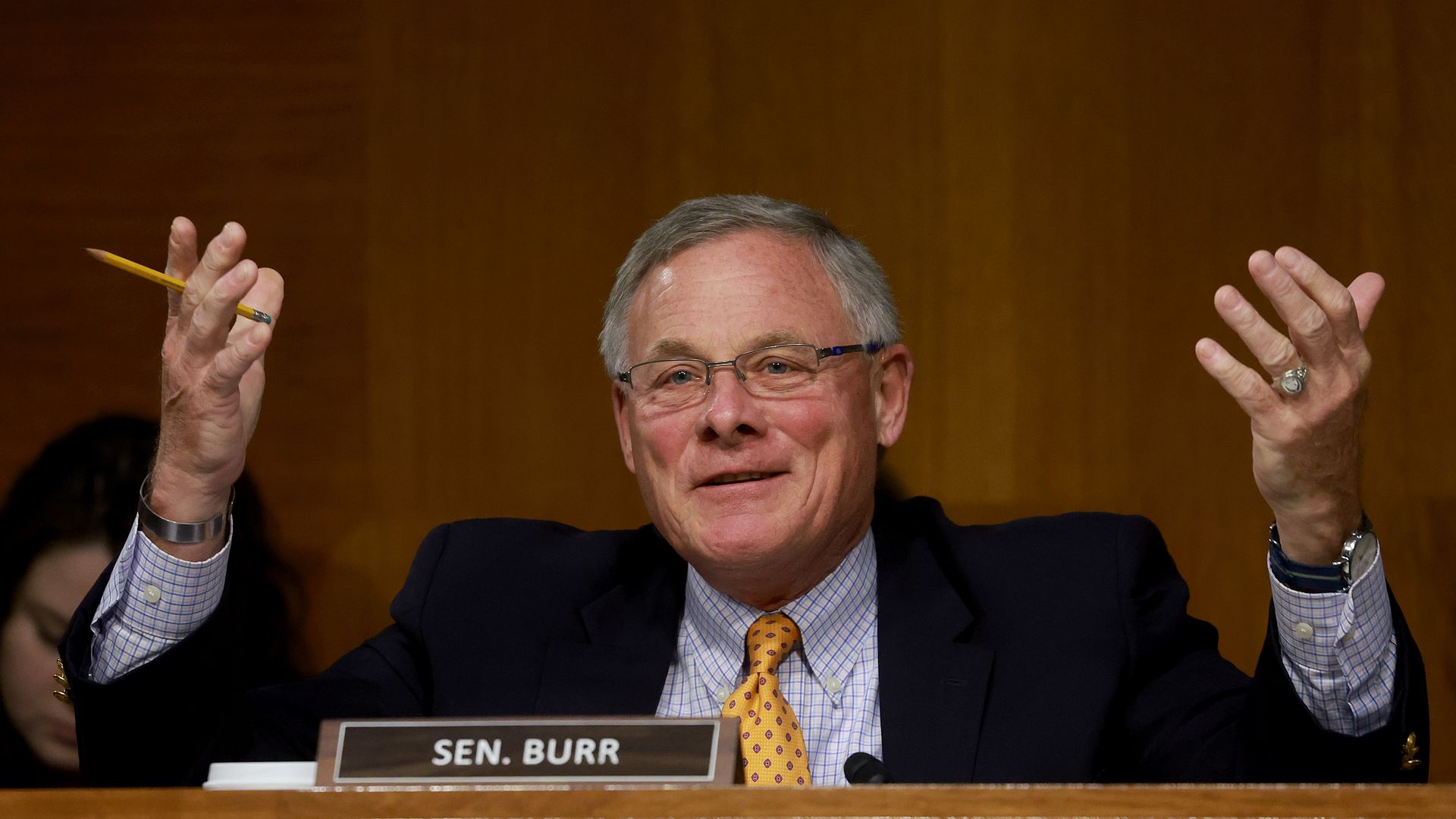Congress hits home stretch renewing FDA user fee programs
Add Axios as your preferred source to
see more of our stories on Google.

Sen. Richard Burr (R-NC) speaks during the COVID Federal Response Hearing on Capitol Hill on June 16. Photo: Joe Raedle/Getty Images
Congress is entering a critical week in efforts to renew the user fees that help fund the Food and Drug Administration. The question is how much the must-pass bill will become a vehicle for other health policy priorities.
Why it matters: The FDA could begin sending furlough notices to staff if lawmakers don't settle on a mechanism for review of prescription drugs, medical devices, generic drugs and biosimilars.
- The focus extends beyond weighing the safety and efficacy of vaccines and therapeutics to questions like whether the agency should have beefed up-oversight over cosmetics, dietary supplements and lab-developed tests.
What we're watching: The FDA bill usually gets bipartisan support but hit a roadblock in July, when Senate Committee on Health, Education, Labor and Pensions Ranking Member Richard Burr (R-N.C.) demanded the removal of policy riders he deemed unnecessary to the legislation.
- Burr's push for a "clean" version of the bill didn't sit well with some Senate HELP colleagues and their counterparts on the House Energy and Commerce Committee who passed more sweeping versions of the bill with bipartisan support in June.
- While few still expect the core user fee programs to lapse by a Sept. 30 deadline, the rift and limited time remaining may not augur well for some high-profile policy priorities.
- "The crowded agenda and shrinking number of legislative days presents a real risk that extraneous provisions will be left out," Cowen analysts Eric Assaraf and Rick Weissenstein wrote in a note to clients, in reference to oversight of diagnostics, supplements and cosmetics.
Zoom in: Among the issues in play is the FDA's process for regulating lab-developed tests, which are critical to the COVID-19 and monkeypox responses. The agency's oversight became a friction point during the Trump administration. House lawmakers have called for a tiered system based on risk that would be supported by a new user fee program, per Cowen.
- The bill could also make limited changes to the agency's fast-track drug approval process, which lets manufacturers sell their products based on preliminary evidence and finish clinical trials once they're already on the market.
- Lawmakers like Sen. Rand Paul (R-Ky.) are seeking to animal testing mandates and allow drug sponsors to use alternative methods where they are suitable.
- Negotiations also could take up language ensuring more diversity in clinical trials and reforms to infant formula packaging.
The intrigue: Burr's objections surround extraneous provisions he said "endanger the development of drugs for rare diseases, imperil intellectual property rights, threaten Americans' access to breakthrough treatments and cures, and deter private sector innovation."
- The senator, who's retiring at the end of this year, was out last week recovering from hip surgery but is expected to return this week.
- STAT reported last week that Democrats made a counteroffer that would tack on pandemic preparedness provisions.
- The talks are playing out while Congress crafts a stopgap spending bill to prevent a government shutdown on Sept. 30.
Our thought bubble: If Burr prevails, many of the policy riders that don't make the cut could resurface in a follow on bill to the 21st Century Cures Act next year.
